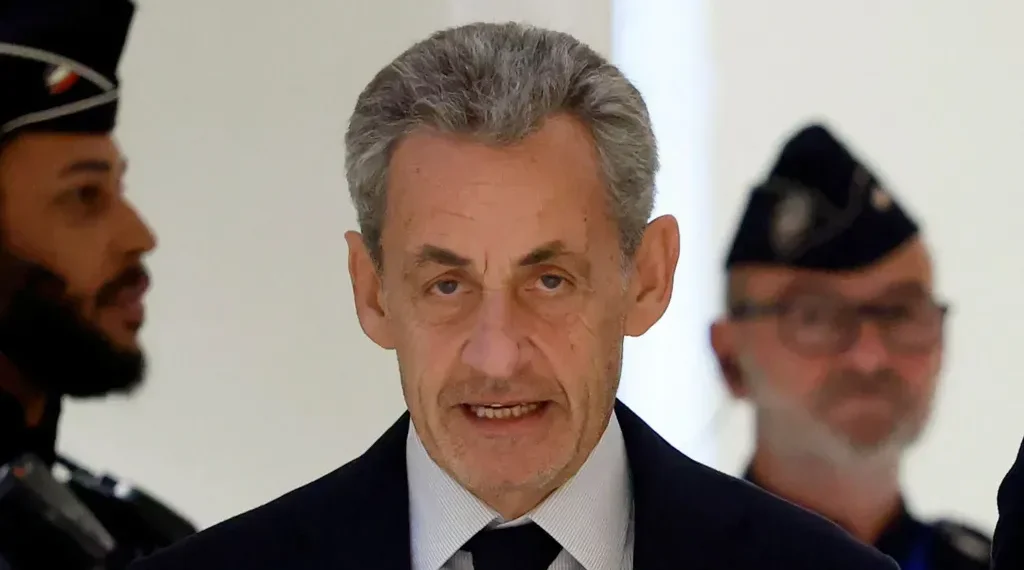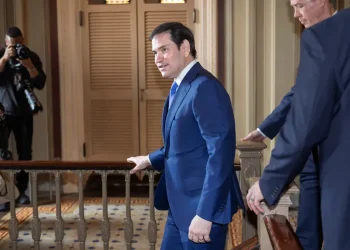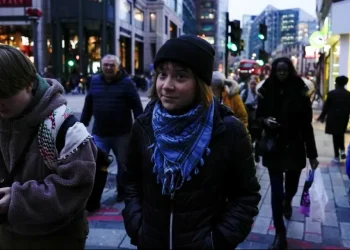Nicolas Sarkozy Sentenced to Five Years in Libya Campaign Financing Case
Published: September-25-2025, 20:30 EDT
Former French President Nicolas Sarkozy has been sentenced to five years in prison after a Paris court found him guilty of criminal conspiracy in connection with alleged illegal campaign funds linked to the late Libyan leader Muammar Gaddafi. The high-profile ruling marks a dramatic moment in French political and judicial history, making Sarkozy the first former head of state in modern France to face possible imprisonment.
A Historic Verdict in French Politics
The Paris Criminal Court announced the verdict on Wednesday, finding Sarkozy guilty of conspiracy while acquitting him of passive corruption and illegal campaign financing. Presiding Judge Nathalie Gavarino stated that Sarkozy had permitted close associates to contact Libyan officials during his 2007 campaign with the aim of securing financial support.
Although the court ruled there was insufficient evidence to prove Sarkozy personally benefited from the alleged funds, it concluded that he had engaged in a broader conspiracy. He was sentenced to five years in prison and ordered to pay a €100,000 ($108,000) fine.
Gasps of shock reportedly filled the courtroom as the sentence was read, underscoring the gravity of the decision against a former French president.
Sarkozy Denies Wrongdoing, Vows to Appeal
Speaking to reporters outside the courthouse, the 70-year-old former leader described the verdict as “extremely serious for the rule of law.” Sarkozy, who governed France from 2007 to 2012, has consistently denied wrongdoing and framed the case as politically motivated.
“If they absolutely want me to sleep in jail, I will sleep in jail, but with my head held high,” Sarkozy said. He confirmed plans to appeal the ruling, though the judgment means he could be imprisoned in Paris in the coming days despite the appeal process.
Origins of the Libya Financing Allegations
The investigation began in 2013, sparked by accusations from Saif al-Islam, the son of Muammar Gaddafi. Saif alleged that Sarkozy accepted millions of euros from Libya to fund his 2007 presidential campaign.
A year later, Lebanese businessman Ziad Takieddine, who often acted as an intermediary between France and Middle Eastern leaders, claimed he had written proof that Tripoli had provided €50 million ($54 million) to Sarkozy’s campaign. Takieddine alleged that payments continued after Sarkozy entered office.
Prosecutors argued that in exchange for Libyan financing, Sarkozy sought to rehabilitate Gaddafi’s international standing, helping him overcome his pariah status among Western nations.
Other Defendants and Related Cases
Sarkozy was not the only high-profile figure implicated in the trial. Former French interior ministers Claude Gueant and Brice Hortefeux were also charged. Gueant was found guilty of corruption, while Hortefeux was convicted of criminal conspiracy.
Meanwhile, Sarkozy’s wife, Carla Bruni-Sarkozy, an Italian-born singer and former supermodel, was charged last year with concealing evidence related to the case and associating with wrongdoers to commit fraud. She has denied all charges.
The former president has been entangled in several other legal battles. In February 2024, he was convicted of exceeding spending limits during his unsuccessful 2012 re-election campaign and of hiring a public relations firm to conceal the overspending. He was given a one-year sentence, with six months suspended.
In 2021, Sarkozy was found guilty of attempting to bribe a judge in 2014, becoming the first French president to receive a custodial sentence. That punishment was later adjusted to allow him to serve his time at home under electronic monitoring.
Implications for France’s Political Landscape
The ruling against Sarkozy underscores the long shadow cast by the Gaddafi financing scandal over French politics. For years, the allegations have fueled debate about corruption, transparency, and foreign influence in France’s electoral system.
Legal experts say the case highlights the judiciary’s willingness to pursue even the most powerful political figures. However, Sarkozy’s repeated denials and continuing legal appeals ensure that the saga is far from over.
As the former president confronts the possibility of jail, the verdict may also influence how future leaders handle campaign financing and international political relationships.
This article was rewritten by JournosNews.com based on verified reporting from trusted sources. The content has been independently reviewed, fact-checked, and edited for accuracy, neutrality, tone, and global readability in accordance with Google News and AdSense standards.
All opinions, quotes, or statements from contributors, experts, or sourced organizations do not necessarily reflect the views of JournosNews.com. JournosNews.com maintains full editorial independence from any external funders, sponsors, or organizations.
Stay informed with JournosNews.com — your trusted source for verified global reporting and in-depth analysis. Follow us on Google News, BlueSky, and X for real-time updates.














